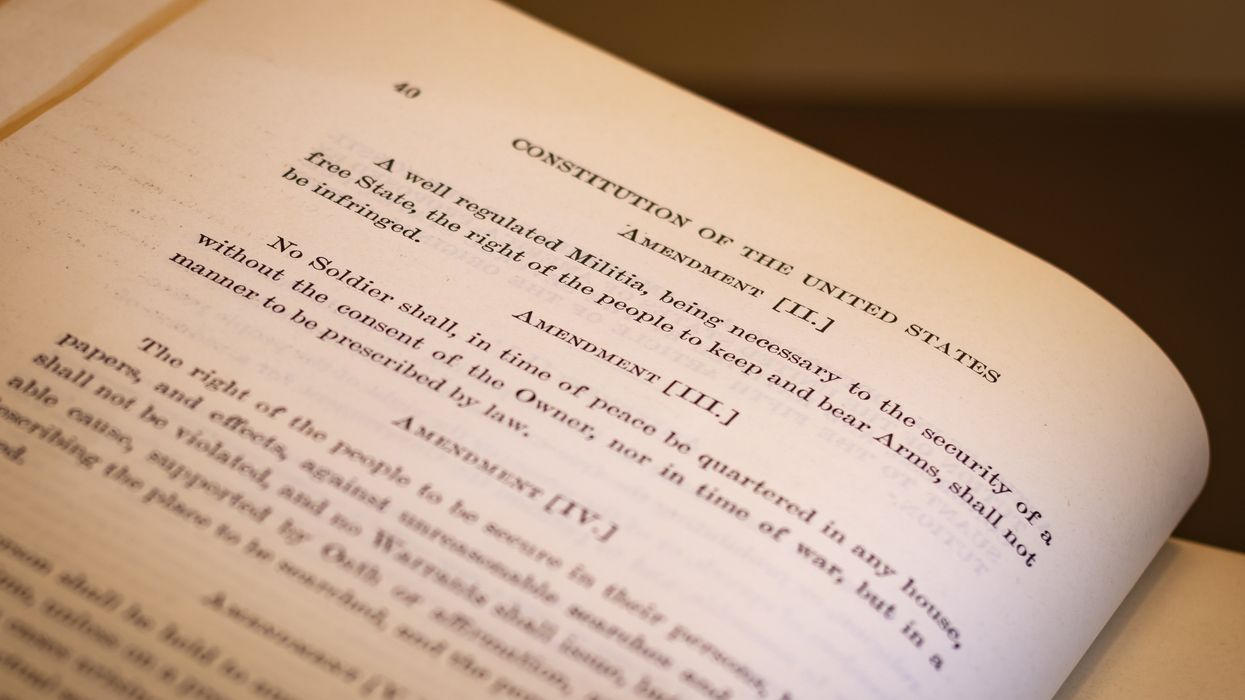Frazier is an assistant professor at the Crump College of Law at St. Thomas University. Starting this summer, he will serve as a Tarbell fellow.
Amending the Constitution has become about as rare as Haley’s comet. That wouldn’t be a problem if the checks, balances and principles set forth by the Framers still functioned in our modern era. Recent experience, however, shows that’s not the case. Our amendment-phobia, constitutional apathy, and institutional distrust have rendered our founding document increasingly out of date.
Consider that by 2040 just 15 states may be home to 70 percent of our population. In that scenario, senators representing 30 percent of Americans could stymie legislation that’s supported by a supermajority of Americans. The Framers designed the Senate to ensure deliberate consideration of legislation, not to serve as a countermajoritarian hammer.
Next, think about the fact that only six corporations had been granted as of 1776. In other words, corporate power was an oxymoron at the time of the American Revolution. Today, corporate growth fuels immense income inequality: just 1 percent of Americans hold half of corporate equities shares and mutual fund shares. This statistic would have infuriated Thomas Jefferson, who, in 1816, urged Americans to “crush in its birth the aristocracy of our monied corporations which dare already to challenge our government to a trial of strength, and bid defiance to the laws of their country.”
Even as our constitutional order tilts further toward constitutional chaos, many regard amending the Constitution as dangerous — making permanent a potentially bad idea. Others think it’s simply not possible — Article V sets a high bar for ratifying an amendment. A few argue it’s unnecessary because the Supreme Court effectively amends the Constitution via its decisions. All of these views lack robust support when compared to the expectations of the Founders.
"When the propriety of making amendments shall be obvious from experience, I trust there will be virtue enough in my country to make them." Rep. James Jackson said that on the floor of the House of Representatives at the start of our republic. This common sense statement that the Constitution can and should be amended when experience shows the need for such changes is no longer popularly held.
I agree that amending the Constitution is a serious step that presents some risks of unintended and seemingly irreversible consequences. But I contest the idea that we cannot trust the American people to step up to the occasion and make sure any such amendment is proper. And, to the extent, such trust is indeed misplaced, then we must invest in civics education and foster a culture of democratic responsibility to restore our faith in the capacity of We the People. The alternative — leaving stewardship of our Constitution to nine unelected justices — is unacceptable.
To those who say that amending the Constitution is just too hard, I encourage you to think back to 1895. The Supreme Court declared the federal income tax unconstitutional that year. In response, individual Americans started to think about how best to overturn that decision. Their primary focus was not on replacing the president or altering the Supreme Court’s size or membership; instead, they focused on amending the Constitution. Nearly 20 years later, they succeeded. Notably that amendment was part of a slew of amendments ratified in the span of a couple years — each of which started as an idea that faced numerous barriers to ever being ratified.
Proper use of the amendment process is a fundamental aspect of our constitutional order. Excessive reliance on shortcuts to effectively amend the Constitution, such as through the courts, has caused us to forget this basic principle. Let’s be disciplined in adhering to our Constitution and fulfilling our role as its stewards.




















Trump & Hegseth gave Mark Kelly a huge 2028 gift